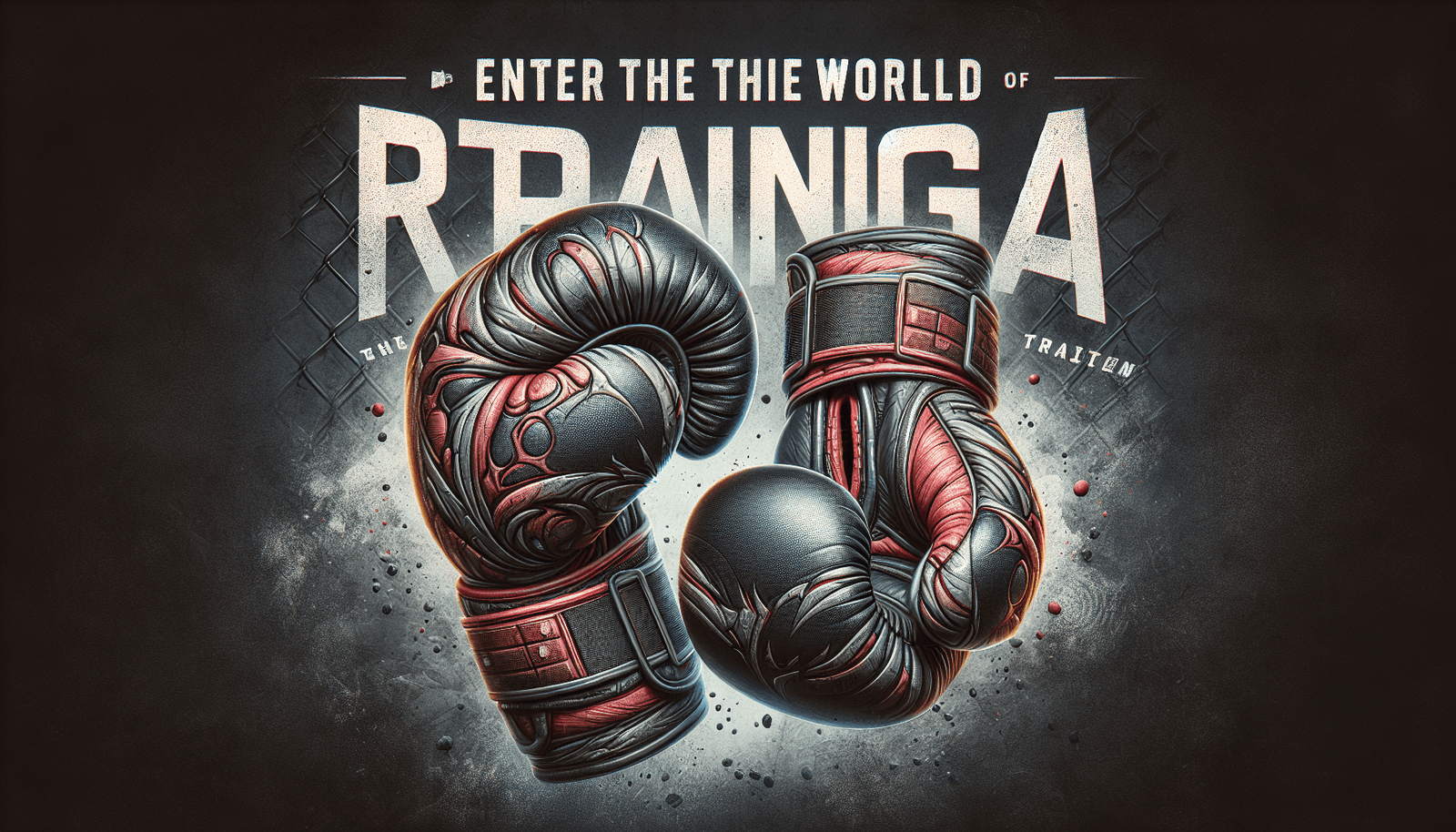So you’ve decided to embark on your MMA training journey as a beginner, but you’re not quite sure where to start? Look no further! This ultimate guide is here to provide you with the best ways to kickstart your training and help you navigate through the exciting world of Mixed Martial Arts. Whether you’re aiming to become the next world champion or simply looking to improve your fitness and self-defense skills, this article will guide you through the essential steps to get you on your way to becoming a successful MMA fighter.
Choosing the Right Gym
When you are starting your journey into MMA training as a beginner, it is important to choose the right gym. Researching gyms in your area is the first step in this process. Look for gyms that specialize in MMA or have experienced trainers who can guide you in your training. Take the time to visit different gyms, check their facilities and equipment, and get a feel for the atmosphere. This will help you find a gym that suits your preferences and goals.
Considering the facilities and equipment is another crucial aspect when choosing a gym for MMA training. Look for well-maintained facilities that have enough space for both group classes and individual training. Ensure that the gym has a variety of equipment suitable for MMA training, such as punching bags, mats, and strength training equipment. Having a gym with quality facilities and equipment will enhance your training experience and allow you to progress effectively.
Looking for qualified and experienced coaches is essential for your MMA training. Experienced coaches can provide guidance, correct form and technique, and help prevent injuries. Check the qualifications and certifications of the coaches at the gym you are considering. Look for coaches who have experience in MMA or related disciplines like Brazilian Jiu-Jitsu, Muay Thai, or boxing. Coaches who are passionate and knowledgeable about MMA can greatly contribute to your development as a beginner.
Checking the gym’s reputation and reviews is a valuable step in choosing the right gym for your MMA training. Look for online reviews, testimonials from current or former members, and feedback on social media platforms. Positive reviews and a strong reputation indicate that the gym has a supportive and knowledgeable community. It is also beneficial to talk to people who train at the gym or know someone who does. Their insights can help you make an informed decision and ensure you choose a reputable gym.
Setting Realistic Goals
Before you start your MMA training, it is important to set realistic goals. Understanding your current fitness level is the first step in this process. Assess your cardiovascular endurance, strength, flexibility, and overall fitness level. This self-assessment will help you gauge where you are starting from and what areas you need to focus on.
Identifying your motivations and objectives is another crucial step in setting realistic goals. Why do you want to train in MMA? Are you looking to improve your overall fitness, learn self-defense, or pursue competitive fighting? Understanding your motivations will help you define your goals and stay committed to your training.
Setting both short-term and long-term goals is important to track your progress and keep yourself motivated. Short-term goals can be achieving specific technique proficiency or improving your cardio level within a few months. Long-term goals can include competing in an amateur MMA event or earning your first belt. Make sure your goals are specific, measurable, attainable, relevant, and time-bound (SMART goals).
Breaking down your goals into manageable steps is crucial for success as a beginner. Focus on mastering basic techniques, improving your conditioning, and gradually increasing your training intensity. By breaking down your goals into small steps, you will be able to progress steadily and avoid feeling overwhelmed.

Preparing Physically
Preparing yourself physically is a key aspect of starting your MMA training as a beginner. Improving cardiovascular endurance is important for the intense and endurance-demanding nature of MMA. Incorporate cardio exercises such as running, cycling, or swimming into your training routine. Gradually increase the duration and intensity of your cardio workouts to build endurance.
Building strength and power is essential for MMA training as it allows you to execute techniques effectively and defend against opponents. Focus on compound exercises like squats, deadlifts, bench presses, and pull-ups to build functional strength. Incorporate both bodyweight exercises and weightlifting into your training routine to develop overall strength.
Developing flexibility and mobility is crucial for injury prevention and better movement in MMA. Include dynamic stretches and mobility exercises in your warm-up routine to improve range of motion. Yoga or pilates can also help improve flexibility and enhance body control, both of which are valuable in MMA.
Working on agility and coordination is essential for MMA training. Incorporate drills that involve footwork, ladder exercises, and reaction training to improve your agility and coordination. These exercises will help you move quickly and react swiftly during sparring or actual fights.
Learning the Basics
Learning the basics of MMA is fundamental for a beginner. Studying fundamental techniques and positions is the first step in your training. Familiarize yourself with the basic stances, movements, and guard positions. Understand the core concepts and principles behind each technique.
Mastering basic strikes and punches is important for both offense and defense in MMA. Practice different strikes such as jabs, crosses, hooks, and uppercuts. Pay close attention to proper form, footwork, and timing. Focus on accuracy and precision rather than sheer power when starting out.
Practicing takedowns and grappling is crucial in MMA. Learn the different takedown techniques like single and double-leg takedowns, as well as clinch work. Grappling techniques, such as submissions, escapes, and transitions, should also be practiced extensively. Understanding takedowns and grappling will give you an advantage in controlling your opponent and dominating the fight on the ground.
Understanding defense and counters is equally important as offense in MMA. Learn how to effectively defend strikes, takedowns, and submissions. Practice counters to strikes and takedowns to turn defense into offense. Focus on maintaining a solid guard and being able to quickly react to your opponent’s attacks.

Safety and Injury Prevention
Safety should always be a top priority in MMA training. Wearing appropriate protective gear is crucial to minimize the risk of injuries. Invest in high-quality mouthguards, shin guards, gloves, and headgear to protect yourself during training sessions and sparring.
Learning proper warm-up and cool-down routines is essential for injury prevention. Prioritize dynamic stretching, mobility exercises, and light cardio as part of your warm-up to prepare your muscles and joints for training. Cool down with static stretching and foam rolling to promote muscle recovery and reduce post-training soreness.
Understanding the importance of proper nutrition is vital for your performance and recovery. Make sure to fuel your body with a balanced diet that includes lean protein, fruits, vegetables, whole grains, and healthy fats. Consult with a nutritionist to create a meal plan that supports your training goals and helps you maintain optimal energy levels.
Recognizing and listening to your body’s limits is crucial for injury prevention. Avoid pushing yourself too hard, especially when you’re just starting out. Pay attention to any pain or discomfort and don’t hesitate to take a break or seek medical attention if needed. Rest and recovery play a crucial role in preventing overuse injuries and allowing your body to adapt and grow stronger.
Building a Training Schedule
Building a training schedule is essential to ensure consistent progress and avoid burnout. Determine the frequency and duration of your training sessions based on your current fitness level and goals. For beginners, starting with two to three training sessions per week is a good starting point. Gradually increase the frequency as you progress.
Balancing MMA classes with strength and conditioning is important for overall development. Include strength training and conditioning workouts in your training schedule to build strength, power, and endurance. Consult with your coaches on how to integrate strength and conditioning into your training routine effectively.
Scheduling rest days for recovery is crucial for avoiding overtraining and allowing your body to repair and regenerate. Plan at least one or two rest days per week to give your muscles and joints time to recover from intense training. Use rest days to focus on active recovery activities like stretching, foam rolling, or light cardio.
Adapting the training schedule as you progress is essential for continued improvement. Regularly reassess your goals, fitness level, and training routine. Make adjustments to your training schedule to challenge yourself, address weaknesses, and incorporate new techniques or drills. A flexible training schedule will keep your training fresh, engaging, and effective.
Mental Preparation
Mental preparation plays a significant role in MMA training. Developing mental toughness and resilience is essential to overcome challenges and setbacks. Embrace the mindset of pushing through difficulties and staying persistent even when things get tough. Developing mental toughness will help you stay focused and committed to your training.
Practicing focus and concentration is important in MMA. During training sessions, make a conscious effort to stay present and focused on the task at hand. Avoid distractions and learn to tune out external noise. The ability to maintain focus is key to executing techniques accurately and reacting quickly during fights.
Cultivating a positive mindset is crucial for long-term success in MMA. Believe in yourself, your abilities, and your potential for growth. Embrace a positive attitude towards challenges and setbacks, viewing them as opportunities for learning and improvement. Surround yourself with positive and supportive people who believe in your goals.
Utilizing visualization and meditation techniques can enhance mental preparation in MMA. Take time to visualize successful techniques, fights, and scenarios in your mind. Visualize yourself performing at your best and achieving your goals. Incorporate meditation into your routine to improve focus, reduce stress, and enhance mental clarity.
Nutrition and Hydration
Nutrition and hydration play a vital role in supporting your MMA training. Understanding the importance of balanced meals is critical for fueling your body. Aim to include a variety of lean proteins, such as chicken, fish, tofu, or beans, to support muscle recovery and growth. Incorporate plenty of fruits and vegetables for essential vitamins and minerals.
Including sufficient carbohydrates in your diet is important for energy during training sessions. Opt for complex carbohydrates like whole grains, sweet potatoes, and brown rice. These carbohydrates provide sustained energy and help replenish glycogen stores.
Staying properly hydrated before, during, and after training is essential for optimal performance. Drink water consistently throughout the day to maintain hydration levels. During training sessions, consume sports drinks or electrolyte-rich beverages to replenish fluids and electrolytes lost through sweat.
Supplementing Your Training
Supplements can complement your training and support your overall health and performance. However, it is important to identify appropriate supplements and consult with a nutritionist or healthcare professional before incorporating them into your routine. They can offer guidance on suitable supplements based on your specific needs.
Consider supplements for muscle recovery and joint health. Whey protein, branched-chain amino acids (BCAAs), and creatine are commonly used to enhance muscle recovery and promote muscle growth. Glucosamine and omega-3 fatty acids are often used to support joint health and reduce inflammation.
Understanding supplement usage and dosage is crucial for safety and effectiveness. Follow recommended dosages and be aware of any potential side effects or interactions with other medications. Always prioritize a balanced diet as the foundation of your nutrition and use supplements as a supplementary aid, not a replacement.
Staying Motivated and Consistent
Staying motivated and consistent is key to long-term success in MMA training. Find a support system or training partner who shares your goals and can provide encouragement and accountability. Surrounding yourself with like-minded individuals can boost motivation and make the journey more enjoyable.
Participating in challenges or competitions can provide additional motivation and milestones to work towards. Sign up for local amateur MMA events, grappling tournaments, or fitness challenges. These events will give you a sense of purpose and help you gauge your progress.
Tracking progress and celebrating achievements is important for staying motivated. Keep a training journal to record your workouts, techniques learned, and personal bests. Recognize and celebrate small milestones along the way, such as mastering a new technique or increasing your strength and endurance. The sense of accomplishment will fuel your motivation to keep pushing forward.
Seeking inspiration from MMA role models can also help you stay motivated. Follow professional MMA fighters who inspire you, and watch their fights and interviews. Learn from their dedication, discipline, and mindset. Draw inspiration from their journeys and their willingness to constantly improve and overcome challenges.
Starting your MMA training as a beginner can be both exciting and challenging. By following this comprehensive guide, you will be well-equipped with the necessary knowledge and steps to take on this new endeavor. Remember to choose the right gym, set realistic goals, prepare yourself physically and mentally, prioritize safety and injury prevention, and stay motivated and consistent. With dedication and perseverance, you can build a strong foundation in MMA and embark on an incredible journey of personal growth and achievement.

